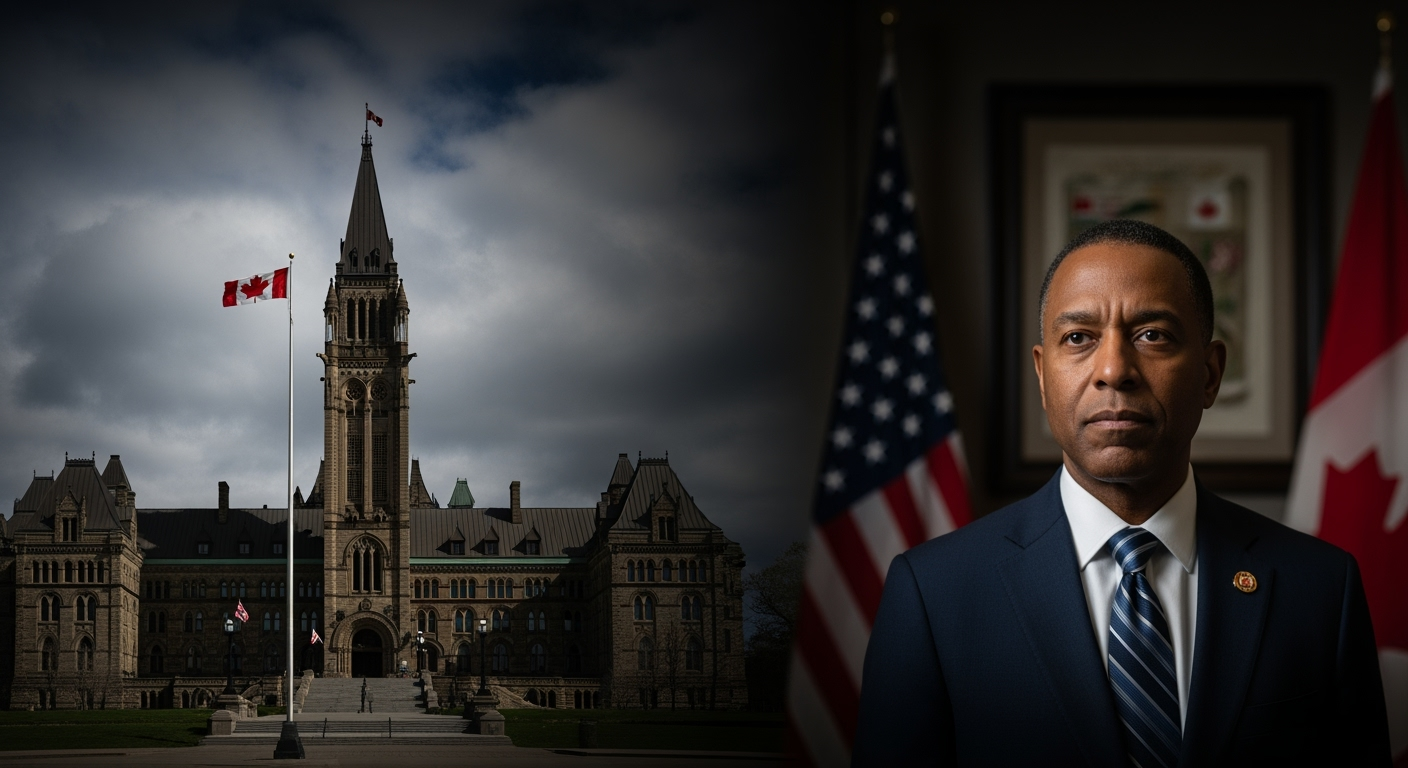Related Articles



TORONTO, ON – Ontario has announced the cessation of its controversial anti-tariff advertising campaign in the United States, a move that comes directly on the heels of U.S. President Donald Trump's abrupt termination of trade negotiations with Canada. The province’s decision, delivered Friday by Premier Doug Ford, represents a strategic pivot in Canada's efforts to influence American public opinion amidst persistent trade disputes, though the commercials are slated to run through the upcoming World Series weekend before ceasing Monday. This latest development intensifies the already strained economic relations between the two North American allies, drawing a clear line between provincial advocacy and federal diplomatic efforts.
The campaign, which reportedly cost the Ontario government $75 million, was designed to broadcast an anti-tariff message directly to American consumers and policymakers. Utilizing historical footage and audio of former President Ronald Reagan criticizing the economic pitfalls of tariffs, the ads sought to underscore the mutual benefits of free trade and the detrimental impact of protectionist policies. However, this high-profile appeal quickly became a flashpoint, provoking a strong reaction from President Trump and ultimately disrupting delicate trade discussions.
Launched on October 14, 2025, Ontario's "Fair Deal for Canada" campaign marked a distinctive provincial foray into international trade advocacy. The central element of the campaign was a television commercial featuring excerpts from a 1987 radio address by President Reagan. In the ad, Reagan's voice warned that tariffs "hurt every American worker and consumer" and inevitably lead to "retaliation by foreign countries and the triggering of fierce trade wars," ultimately causing markets to shrink, businesses to close, and jobs to be lost.
These commercials were strategically placed on prominent American networks, including Fox News, Fox Sports, Newsmax, Bloomberg, NBC, CBS, and CNBC, aiming for maximum exposure, particularly during high-profile events like the Major League Baseball playoffs. The Ontario government's stated intention was to "initiate a conversation about the kind of economy that Americans want to build and the impact of tariffs on workers and businesses." Premier Ford maintained that the campaign had successfully achieved its objective by reaching U.S. audiences "at the highest levels."
However, the use of Reagan's words was not without controversy. The Ronald Reagan Foundation issued a statement indicating that the ad "misrepresents" the presidential address and that the Ontario government had not sought nor received permission to use and edit the remarks. This claim provided President Trump with further ammunition for his criticisms.
President Trump's reaction to the Ontario campaign was immediate and unequivocal. Late Thursday, October 23, he announced on social media his decision to terminate all trade negotiations with Canada, directly attributing the breakdown to the anti-tariff advertisements. Trump characterized the ads as "fraudulent" and "FAKE," suggesting Canada had "cheated and got caught" in its portrayal of Reagan's views on tariffs. He also accused Canada of attempting to influence a pending U.S. Supreme Court ruling concerning his administration's global tariff regime.
This aggressive stance from the U.S. President underscored the deep sensitivities surrounding trade issues, particularly in the context of the ongoing renegotiation of the North American Free Trade Agreement (NAFTA), which eventually led to the United States-Mexico-Canada Agreement (USMCA). Tariffs on Canadian steel and aluminum, initially imposed by the U.S. in May 2018, have been a persistent point of contention, with Canada having previously implemented retaliatory measures. The Trump administration has consistently maintained that Canada maintains "longstanding, unfair trade barriers," and viewed Ontario's ad campaign as a diversionary tactic rather than a constructive engagement.
Following President Trump's declaration, Premier Ford announced Friday, October 24, that the province would "pause" the ad campaign starting Monday, October 27. This decision was made after consultation with Prime Minister Mark Carney, who is currently in Asia for international summits where he is expected to encounter President Trump. Despite the pause, Ford directed his team to continue running the ads over the weekend, ensuring they would air during the first two World Series games, thereby securing a final wave of exposure to a vast American audience.
The halting of the campaign signifies a strategic withdrawal by Ontario in the face of escalating diplomatic tensions. While Premier Ford maintained that the campaign had served its purpose, the timing and context suggest a move to de-escalate and allow federal trade discussions to resume. Prime Minister Carney, in response to the breakdown in talks, acknowledged that Canada cannot control U.S. trade policy but affirmed his government's readiness to engage in negotiations when the American side is prepared.
The incident has also highlighted differing opinions within Canada regarding the most effective approach to U.S. trade relations. Alberta Premier Danielle Smith welcomed Ontario's decision, emphasizing diplomacy and good faith as the correct strategy for resolving trade disputes. Conversely, Manitoba Premier Wab Kinew expressed a contrasting view, suggesting that Trump's strong reaction indicated the ads were effective and encouraging Ford not to back down.
The sudden interruption of trade talks underscores the volatile nature of the Canada-U.S. trade relationship under the current U.S. administration. While the USMCA eventually replaced NAFTA, the underlying tensions surrounding tariffs and market access persist. The Ontario ad campaign, while a provincial initiative, inadvertently placed Canada's federal government in a more precarious negotiating position by directly challenging President Trump's protectionist narrative.
The pause in Ontario's advertising campaign offers a momentary reprieve, creating an opening for a resumption of high-level trade discussions. However, the incident serves as a stark reminder of the complexities involved in managing the economic ties between the two nations, where provincial actions can have national and international repercussions. The focus will now shift to whether the diplomatic channels, once cleared of the advertising "noise," can effectively address the substantive trade issues that continue to impact industries and workers on both sides of the border. The coming weeks will likely reveal whether this strategic retreat by Ontario paves the way for renewed dialogue or merely postpones further friction in the critical Canada-U.S. economic partnership.